
Canned foods nutritionists actually buy
Canned goods tend to get a bad rap because they’re thought to be less nutritious than their fresh counterparts—but that’s not always the case. The best way to make the healthy choice is to carefully read the label and ingredient list, and follow these registered dietitians’ tips for selecting the best canned foods.
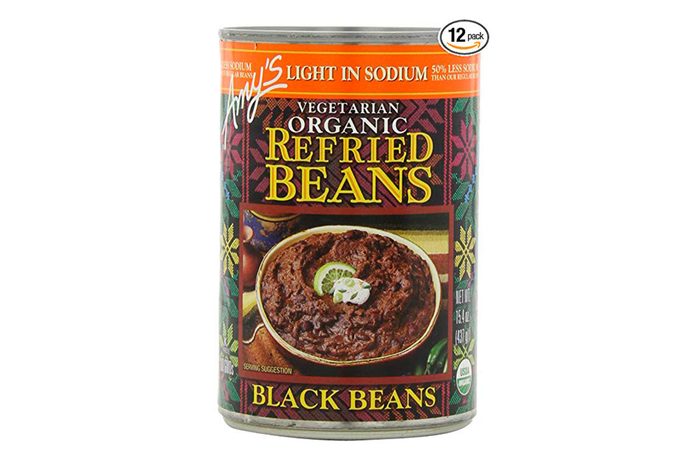
Beans
“My favorites are cannellini, kidney, black and garbanzo beans, but all are rich in vitamins, minerals, fiber and plant-based protein,” says Malina Linkas Malkani, RDN and media spokesperson for the Academy of Nutrition and Dietetics and creator of the Wholitarian Lifestyle. She always keeps a wide variety of canned beans on hand in her pantry. “And they provide [a] long-lasting energy source for the body.” They are also inexpensive and convenient because they go easily into soups, stews, burritos, and casseroles. Malkani says they can even go into smoothies and baked goods like brownies and bars. She advises buying the low-sodium variety and rinsing the beans thoroughly in cold running water before eating them.
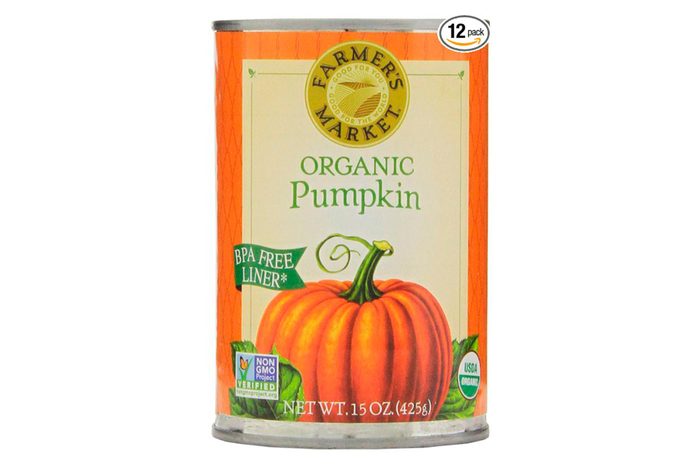
Pumpkin
Beware: Canned pumpkin is not the same as “pumpkin pie mix,” Malkani warns. The latter usually contains added sugars and more calories. That said, canned pumpkin is another one of Malkani’s favorites. “It saves time and can be just as healthy as fresh, as long as you check the ingredient label and choose versions that contain 100% pumpkin without added salt, sugar, additives, and preservatives,” she says. Pumpkin has vitamin A, iron and potassium and adds delicious flavor and texture to pies, soups, and pancakes, to name a few, Malkani says.
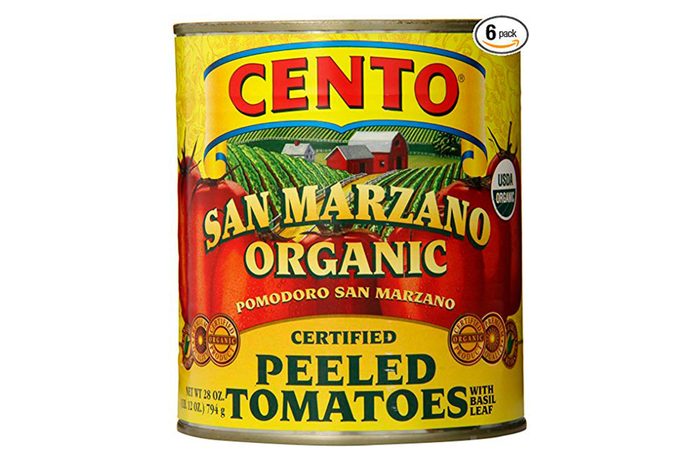
Tomatoes
Canned tomatoes are another huge time-saver when you’re making sauces, soups, stews or lasagna, according to Malkani. “In my pantry, you’ll always find canned tomato sauce, tomato paste and both diced and crushed tomatoes,” she says. The canned variety has a higher lycopene antioxidant count than fresh ones. The antioxidant may help reduce the risk of heart disease, certain types of cancer and macular degeneration, according to Malkani.
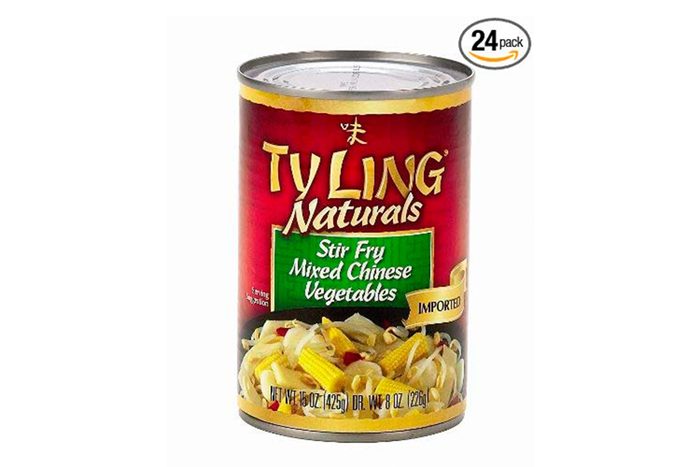
Corn, water chestnuts, and mixed vegetables
Pantry staples like canned foods are great for quick and easy Mexican- or Asian-inspired meals, says Kris Sollid, RD, senior director of nutrition communications at the International Food Information Council Foundation. In addition to low-sodium black beans, Sollid likes keeping corn, water chestnuts and bamboo shoots on hand for impromptu stir-fries. “All of these are low in calories and sodium and add great crunch and flavor, too,” he says.
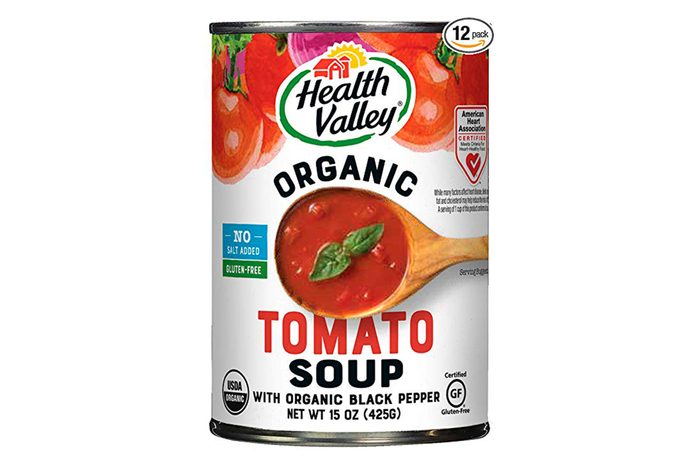
Soups
Canned soups are another quick and easy meal addition. There are a few important things to keep in mind to ensure you’re buying a healthy version. “I specifically look for canned soups that offer no more than 300 milligrams per serving, or no more than 600 milligrams of sodium per can; [have] at least three grams of fiber per serving; have no added sugar; and are plant-based,” says Andy Bellatti, RD, in Las Vegas.
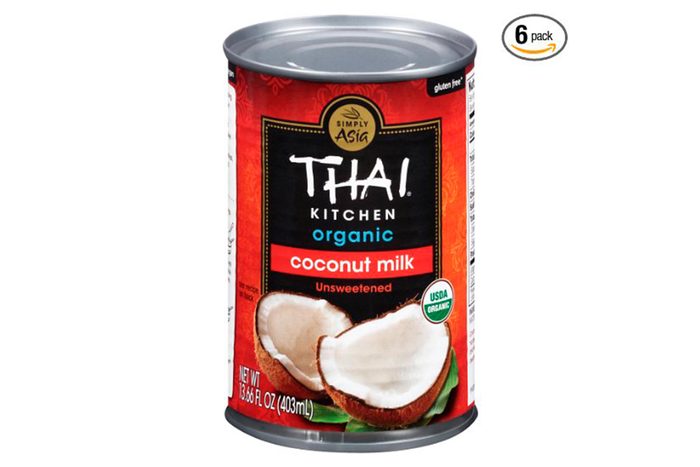
Coconut milk
Bellatti likes to open a can of coconut milk and add a tablespoon or two to brown rice cooking water, smoothies, and oatmeal. “A tablespoon or two of canned coconut milk can add wonderful flavor,” he says.
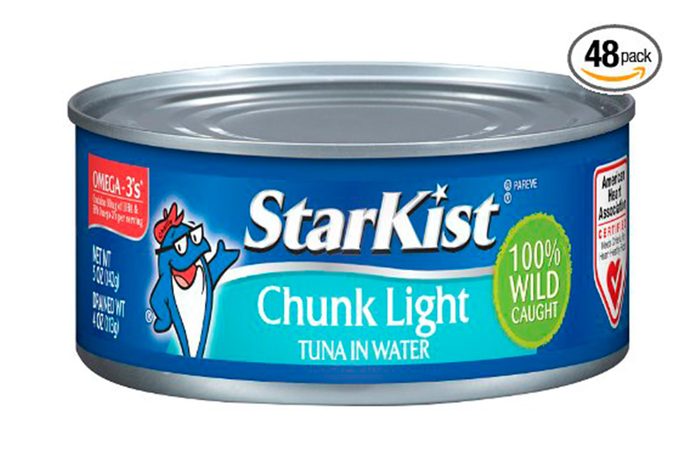
Canned tuna
“Add it to a salad, or mix with a little mayo or vegan mayo, celery, relish, and other veggies, for an easy meal,” says celebrity nutritionist Lisa DeFazio, RD, in Studio City, California. This low-calorie, high-protein option is easy to prepare. Get tuna in water rather than oil to save on calories.
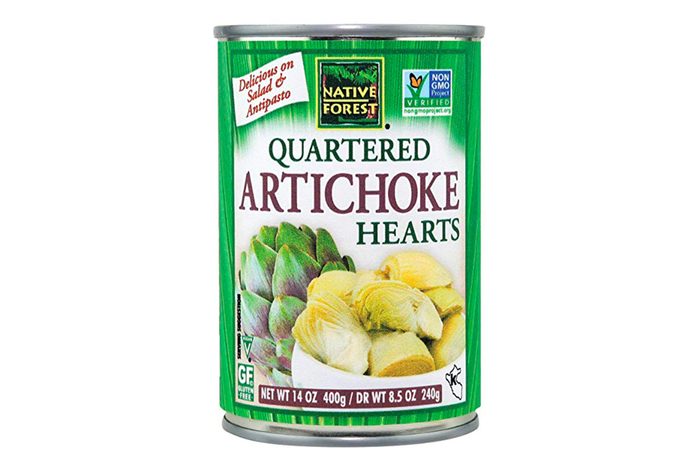
Artichoke hearts
DeFazio likes adding these veggies to salads and pasta dishes. “These are loaded with fiber and prebiotics,” she says.
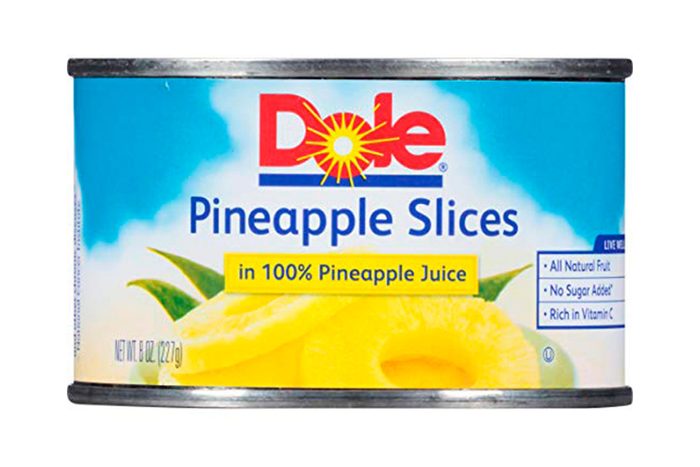
Pineapple (in juice)
This golden fruit is tasty and versatile; just be sure to buy the canned version that has juice—not syrup. “In juice it will not have as much sugar as the syrup one,” DeFazio says. “Pineapple and cottage cheese is always a tasty snack or breakfast.”
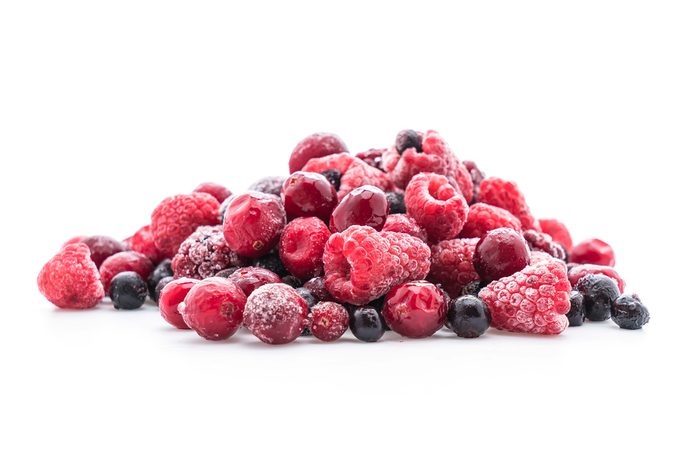
Skip the can: Berries and leafy greens
These are two foods Malkani buys fresh or frozen, not canned. Frozen produce is generally picked at peak ripeness and frozen immediately, retaining the maximum amounts of vitamins and minerals. On the other hand, the canning process can lead to the loss of certain nutrients like vitamin C, Malkani says. If you do buy canned fruits like peaches and mandarin oranges, look for versions that are packed in water rather than syrup to avoid excess added sugars, she recommends.
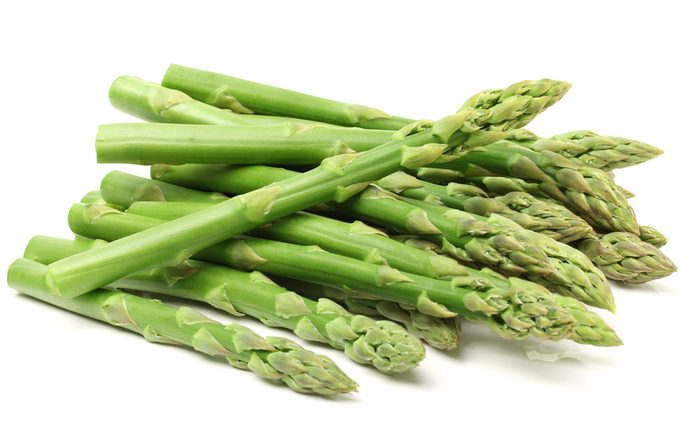
Skip the can: Asparagus
The only food Sollid doesn’t buy in a can is asparagus. “But my choice has nothing to do with nutrition,” he says. “For me, it’s a texture thing, so I prefer my asparagus fresh and lightly sautéed or grilled.”
For more wellness updates, subscribe to The Healthy @Reader’s Digest newsletter. Keep reading:
